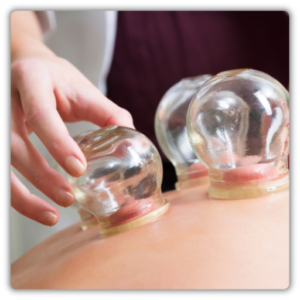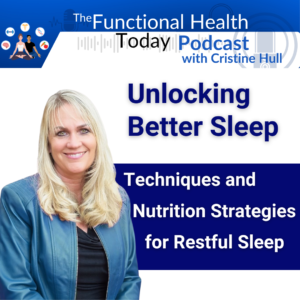
Did You Enjoy This Podcast?
Are you a man over 40 looking to regain your energy and health? Join Jim from Vitality Brotherhood, a coach who specializes in holistic lifestyle changes. Discover practical steps to boost your testosterone naturally and learn how to implement simple habits for lasting well-being!
Many men over 40 experience changes in their vitality and well-being, often linked to testosterone levels, lifestyle choices, and their circadian rhythm. The effect of testosterone on body weight, sleep disorders, and overall health is significant. As testosterone levels decline in older men, lower testosterone levels can impact both physical and mental well-being, affecting hormones in men and causing disruptions in their circadian rhythm. Understanding the interplay between these factors and their role in testosterone in men can lead to improved health and quality of life for healthy men as they age.
The Role of Testosterone in Men’s Health

Testosterone is crucial for various aspects of health, including energy levels, mood, and sexual function. Historically, men had testosterone concentrations averaging between 900 to 1000 ng/dL in the mid-20th century. Currently, many men entering their 40s or 50s register closer to 400 ng/dL. This decline in serum testosterone can affect motivation and physical wellness, leading to decreased desire to exercise or engage in daily activities. With testosterone levels dropping significantly, it is vital for men to find effective ways to support and potentially elevate their testosterone to maintain their drive and energy.
Testosterone treatment, including testosterone replacement therapy or other approaches, may be effective for many older men experiencing low testosterone levels. Studies of men have shown that testosterone therapy in older men can increase testosterone levels and potentially mitigate the effects of sleep loss, especially regarding sleep stage and the relationship between sleep and testosterone. The risks and benefits of testosterone therapy are still debated, but it is known that sleep may be positively affected by increasing testosterone, and clock gene expression can also play a role in regulating circadian rhythms. Testosterone treatment, including doses of testosterone, may help increase testosterone in normal men and elderly men, especially in cases where sleep loss has affected their overall health. Whether testosterone therapy works effectively depends on individual needs and the study of men’s health over time.

Pop in your email below, and we’ll zip it straight to your inbox so you never lose it!
🥗 Lifestyle Choices That Matter
Diet and lifestyle play a significant role in managing testosterone levels. For instance, consuming foods rich in zinc and magnesium, such as oysters, can help enhance testosterone production. Moreover, reducing stress is essential; chronic stress negatively impacts hormonal balance, affecting both testosterone levels and the circadian clock. Strategies like regular physical activity and mindfulness practices can lead to better stress management, potentially reducing adverse effects of high stress and enhancing testosterone production.
Incorporating walking into your day could enhance both physical and mental health. Walking not only helps with weight management but also exposes you to natural light, which is beneficial for regulating your circadian rhythm. Studies suggest that outdoor exposure can significantly enhance mood and reduce feelings of sadness, helping regulate sleep patterns and improving sleep quality. Disruption of circadian rhythms and circadian misalignment is known to affect hormones, including testosterone. Managing your circadian timing system, such as getting sunlight exposure in the morning, can also contribute to more effective testosterone levels.
For men with obstructive sleep apnea or men with type 2 diabetes, lifestyle changes can be particularly impactful in regulating testosterone levels and sleep quality. Clinical trials have shown that improving sleep hygiene and managing conditions like obstructive sleep apnea can help mitigate the effects of testosterone therapy. A decrease in testosterone can worsen symptoms of these conditions, but studies suggest that testosterone would benefit men in such circumstances, improving sleep and overall hormone balance. Endocrinology research continues to explore how testosterone affects sleep, and how treatments can benefit men dealing with these sleep disorders.
Circadian Rhythm and Its Importance
Circadian rhythms are the natural cycles that regulate sleep and wakefulness, crucial for overall health. Disruption of these rhythms can lead to various health issues, including weight gain, diabetes, and even cardiovascular problems. Men often spend upwards of 97% of their days indoors, which limits natural light exposure and can throw off their circadian clocks. To counteract this, it is recommended to get outside, especially in the morning. Light exposure in the early day is considered pivotal in resetting and maintaining these natural cycles, improving circadian rhythmicity, and enhancing testosterone, including free testosterone levels.
The circadian system plays a critical role in hormone regulation, including testosterone levels. Studies have shown that circadian rhythm disruption can worsen testosterone deficiency in older men, affecting muscle mass, sleep, and metabolism. Additionally, circadian behavior and circadian oscillations are deeply connected to how testosterone production is regulated throughout the day. Gene expression in peripheral tissues and rhythms of clock gene expression can be influenced by proper light exposure, affecting overall hormone balance.
Establishing a consistent sleep routine, reducing screen time before bed, and avoiding bright lights at night are essential strategies for maintaining a healthy circadian rhythm and optimal testosterone production. For older men, testosterone treatment in older men may be enhanced by improving circadian regulation, as disrupted rhythms can hinder the effectiveness of hormone therapies. Simple changes, such as allowing morning daylight to enter your space, can have a substantial impact on sleep quality, testosterone production, and overall hormone balance. Real-time reporting of circadian dynamics has even shown that small adjustments to light exposure and sleep routines can positively affect testosterone levels.
Taking Action for Better Health
Making lifestyle changes does not need to be overwhelming. Start by incorporating simple habits like regular walks, balanced meals rich in protein, and consistent sleep schedules into your daily routine. Establishing foundational habits will not only support testosterone levels but also balance circadian rhythms, improve sleep duration, and enhance overall well-being. A recent study highlights the connection between sleep quality and testosterone, noting that improvements in sleep duration and quality can positively affect plasma testosterone levels and overall hormone balance.
As men navigate their 40s, recognizing the connection between testosterone, lifestyle, and circadian rhythms can support healthier living. For example, integrating consistent sleep schedules can help regulate the circadian pacemaker, which governs the body’s internal clock, including the circadian period and the timing of sleep episodes. These habits can lead to significant improvements in energy, motivation, and happiness, making the years beyond 40 a vibrant period of life rather than a time of decline. Addressing sleep apnea is essential as well, as it can disrupt REM sleep and worsen testosterone levels, including serum testosterone concentration, in patients with obstructive sleep apnea.
Integrating testosterone therapy, lifestyle adjustments, and circadian regulation will ensure you are not just aging but thriving through your 40s and beyond. For men with severe obstructive sleep apnea, addressing sleep disorders and using appropriate sleep medicine can improve sleep quality, which may in turn increase testosterone levels. Studies have also shown that testosterone treatment increased muscle mass and the contribution of testosterone to overall vitality, while managing lifestyle factors can prevent the decrease in testosterone that often occurs with age.
Did You Enjoy This Podcast?
Are you a man over 40 looking to regain your energy and health? Join Jim from Vitality Brotherhood, a coach who specializes in holistic lifestyle changes. Discover practical steps to boost your testosterone naturally and learn how to implement simple habits for lasting well-being!














